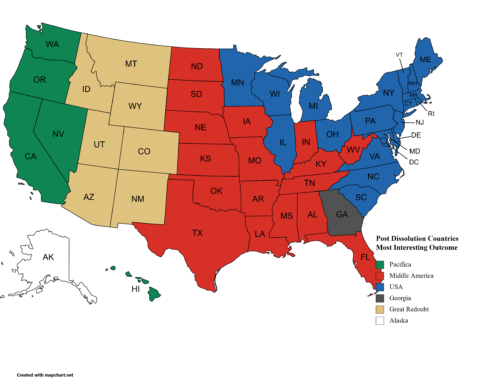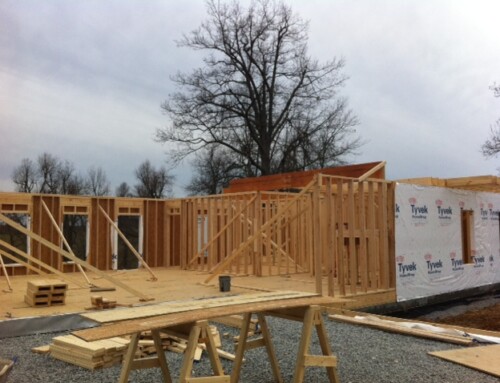Business and civic leaders are working their way through perhaps the most tumultuous year of their careers. A global pandemic, an election year and civil unrest. Yet you don’t have the time nor the bandwidth to feel sorry for yourselves, so you go to it and work the issues critical to your job. That’s how it ought to be. Like everyone, leaders have an idea of how they’d like the world to be and how things ought to work, but you don’t pretend that the situation is something other than it is. If so, you wouldn’t have made it to where you’re at.
A few weeks back we put forth some thoughts and predictions on our present crisis. It is really interesting how rapidly the situation evolves and how unprepared we are for that evolution. While those predictions still hold, new information requires us, at the very least, to consider whether it affects our predictions and whether we need to adjust our plans. We should not expect a fluid situation to adhere to our unreasonable expectations of a linear progression. So lets do some thinking.
Lets look at what we expected to happen and how those expectations played out and then what we can take forward from that difference. Then lets look at how the return to schools is playing out and what that has to do with what we’ve learned about this virus since the outbreak. Then lets take a look at rhetoric vs. reality and why that it an important distinction. Then we’ll make some not-so-bold predictions about what to expect in November with respect to what you as leaders ought to prepare for. Finally we’ll take a look at a historic event and see how we can learn from it today.
Back at the beginning of the year, when it was apparent that Covid was indeed a pandemic (a rapidly spreading disease that crosses international borders), we worked under several critical false assumptions, namely that the virus would have a seasonal effect like most common flu viruses, and that it was primarily spread by touch. Those assumptions had necessary consequences. And those assumptions had to be balanced against the very real and foreseeable negative effect on the economy. And even there we make assumptions about how to close everything down that we would do differently today.
Before we go any further, lets please remember that people generally are trying to do the right thing. In any situation, leaders must balance the need for information with the timeliness of making decisions. These assumptions turned out to be wrong, but they weren’t made out of malice or idiocy. That said, making decisions based on the expectation of how the virus spread, that it would abate in the summer and that the shutdowns occurred with such variation, did exacerbate the spread of the virus.
Leaders at all levels and in all industries and civil government have responsibilities that are not based on who the President is or to what party the President belongs. That is an important truth because all leaders need to remember that they never need to ask permission to do their jobs. And a major part of your job is taking in information and deciding strategies and courses of action based on information as you receive it. If the President recommends a course of action that you find credible, then you ought to run with it. If the President recommends something that your advisors and you think is not credible, then you need to make the decision you think is right because the President has a fixed term of office, yet you are responsible for your lane today and beyond.
So when it became clear that countries like South Korea, with a population of more than 10 million more people than California arrested the spread of the virus and topped out at around 200 deaths by the time the positive cases were just beginning to spike in the US. As of this writing, South Korea has seen 306 deaths from Covid, whereas California with more than 10 million fewer people has seen 11, 523. Those differences in outcome speak for themselves. They do not care what party is in power. They do not care whether you think following directions makes you a sheep. They merely show that high death rate is not inevitable and that differences in strategy lead to differences in outcome. That truth ought to give all leaders pause for reflection.
So now that we know that the SARS-CoV-2 virus is transmitted primarily through aerosolized droplets while breathing. We know that it is not abated by higher temperatures. We know that some large percentage of infected people (up to 40%) show no symptoms and that it is highly transmissible. Those are facts that ought to make leaders change their strategies from what they decided before those facts revealed themselves. And this being a new, or novel, coronavirus, we ought to be not just open to changing out strategies, but eager to find out new information which will drive those changes.
So if you are the production manager of a manufacturing facility, you never need to wait to ask the President’s permission to require your employees to wear masks as soon as the evidence shows mask use is effective. In the US that moment ought to have been in May when 2 hairstylists that were positive with Covid saw 139 patients before ceasing their work and didn’t pass the virus on to any of their clients when they were wearing masks. That evidence doesn’t show that the virus isn’t really bad. That evidence shows masks work. That evidence ought to give comfort to plant managers that their work can continue largely as is if everyone is masked up, and if distancing is possible, then that plant manager ought to be even more confident. Now you cannot control what your employees do when they’re out of your supervision, and some may bring the virus into the workplace, but you can be reasonably confident that they won’t pass the virus on to others as long as everyone is in masks. Removing those infected from your lines one at a time is far better than shutting down the whole line.
Again, nobody is asking you to change your political leanings or how you vote. We’re talking about using evidence to make your decisions. As schools come into session, we will fairly quickly see which systems result in outbreaks and which do not.The University of North Carolina at Chapel Hill suspended in-person classes after only two weeks of students coming to campus after the case numbers started rapidly increasing. That is probably to be expected given the reality of discipline among college students. That is not to say they are bad people. It is to acknowledge that from location to location around the country, when young people gather, they don’t wear masks outside of required times. Given that upwards of 40% of cases are not symptomatic, it stands to reason that the virus rapidly spreads in those situations.
That means that as children go to school, the best defense is universal mask wear and spacing as is practical in schools. What you also have to expect is that as families gather together without masks, anything a child might catch at school can be expected to be passed to the parents who then are taking that to their work locations. That doesn’t mean those adults will transmit the virus at work. It does mean that schools and work places become nodes of transmission, like nodes in any network. And when there are critical elements in any network, such as teachers in a school, their infection causes foreseeable ripple effects. If a school district opens for in-person teaching, they must have contingency plans for what happens when teachers become ill and are out for two weeks or even a month. Likewise for the quarterback of the football team. Likewise for the quality inspector at the plant.
As leaders we are required to understand the difference between Rhetoric and Reality. We must understand that risk acceptance is based on truth and evidence. You don’t have to like the reality, but you ought to make your decisions based on it. Tami Davis Biddle, in her book Rhetoric vs.Reality in Air Warfare noted the consistent difference between the claims of air power advocates as to the decisiveness of aerial bombardment and the empirical evidence of outcomes. She never said that air power wasn’t good or effective, just that it didn’t match the claims of its advocates.
We see the same today in people who claim the virus isn’t as bad as the media is making it out to be or that the numbers are being made to make certain politicians look bad. The point is that the number of deaths is the number of deaths. The truth isn’t good or bad. It just is. If you’re a leader and someone argues to you that you ought to take a certain course of action because the numbers just aren’t that bad, you should ask then at what point would they think the numbers are bad. In other words, ask your fellow conversationalist what bad would look like so that you know when you see it. Then once that number is given, ask how long it will take to get to that number given the current trajectory and what might be done to change that trajectory. And if the answer is nothing, you have to decide if the risk of that number is ok with you and what it means to your job as a leader. If not, then you have to choose some alternative to doing nothing and letting the virus take its natural course.
If you’re a county clerk and want to open the backlog of drivers license renewals, it is entirely reasonable for you to feel safe opening your offices to people coming in with appointments, or even in lines as long as distancing rules apply. You have to take into account the normal number of renewals you process in any given week and compare that to how large your backlog is. You have to coordinate with your local law enforcement to be lenient to expired licenses until the backlog can be cleared. That is your reality regardless the rhetoric you hear thrown at you every day. Your risk acceptance is your call. But make it on the reality, not some desire.
Now for the hard part. Over the last few weeks as information has come to light and become more precise, it is time to consider some important predictions for the Fall and election season.
As the summer wanes and colder weather comes around, it would be prudent to expect that the normal flu season we see every year will occur as normal. We do not know the effect of cold weather on the SARS-CoV-2 and transmissibility, nor the effect of the body having to fight off both the SARS-CoV-2 virus in addition to one of the seasonal flu viruses simultaneously. But we know that Covid will still be around, and we know that there will be a flu season. So we shouldn’t be surprised if there is some spike in illnesses even beyond what we’ve seen with Covid. If your job requires international travel and meetings with foreign partners, you might have to take into account a mandatory quarantine time in the country you plan to visit. You may need to schedule Covid testing the morning of your departure.
That spike, depending on the weather, may occur coincidentally with the election in November. That seasonal spike in cases might be the easiest outcome for us to deal with come election time. More likely is the almost certain cyber attack that will come from another country (most likely Russia) targeting the election. We must prepare as leaders at all levels and in all areas that the election will be targeted and that some large number of people will not be confident in the election outcome.We must prepare for the possibility that either presidential candidate will not concede the outcome. We must prepare for one of several possible outcomes of the election that leave us questioning the results into the new year beyond Inauguration Day.
If you’re a county clerk or election commissioner, that could be you having to certify local election outcomes in the event of a cyber attack. Imagine a targeted attack on the election machines, email servers and electricity grid in a key city of a battleground state such as Milwaukee or Detroit or Austin. An attack on any of these cities will affect the electoral outcome in a particular direction. It isn’t a tremendously bold prediction to assert such an attack will take place. But this isn’t about being bold. Given Russian desired ends to sow distrust in American governance and electoral outcomes, it is likely that despite all US efforts to protect the election, such a concerted attack is very likely. The most likely cities are easily considered. Leaders in those locations ought to be prepared and not surprised.
And given the President having already begun casting doubt on the election months in advance, it is not unreasonable for individuals to prepare themselves to make their voices heard however you think that is best done, whether in person on Election Day or in early voting or by mail. We will all need a strong measure of patience and charity towards our neighbors, especially those who we disagree with. We must be prepared for protests. We can hope they will be peaceful and ought to do everything we can to make them so. We ought also do all we can to mitigate their effects if they turn violent. We certainly don’t have to accept that violence as good or necessary. But we ought to prepare for it.
If you are a downtown business owner, you ought to consider how protests could affect your security. If you’re a parent your kids will be closely watching how you accept the results of the election and what you do in the aftermath. If you’re a local mayor or police chief, you ought to consider the extent to which you’ll be able to protect property in your area in case of unrest and think now about prioritization. That doesn’t make you a Debbie Downer. It makes you the leader that you are.
Finally, we ought to consider that what we’re living through isn’t something new to humanity. We’ve gone through terrible plagues, wars hardships of all kinds and we have made it to this point of our life on Earth. One time we might consider looking to is the London Blitz of World War II and how Londoners survived prolonged isolation and bombing. I’d recommend you listen to Paul Ollinger’s interview with Professor Amy Bell, author of London Was Ours on his Crazy Money podcast. Like so many people today, the Londoners endured nightly bombings, isolation, boredom and food shortages. And it wasn’t all smiles and stiff upper lips. The pain was real just like it is today. But individuals and the society can come through strong. We really can.
The next few months may be every bit as difficult as the last 7 have been. It is almost certain that come November we will see Covid come face-to-face with at best political questions and more likely unrest. Leaders everywhere have an obligation to prepare for these foreseeable outcomes. You can and ought to separate how you vote from the assumptions you make and the strategies you decide as a result. Nobody is asking you to be other than who you are. But your jobs require you to foresee the foreseeable and act according to evidence and reality.
Write me if you have any questions or comments.
Keep thinking…






Leave A Comment